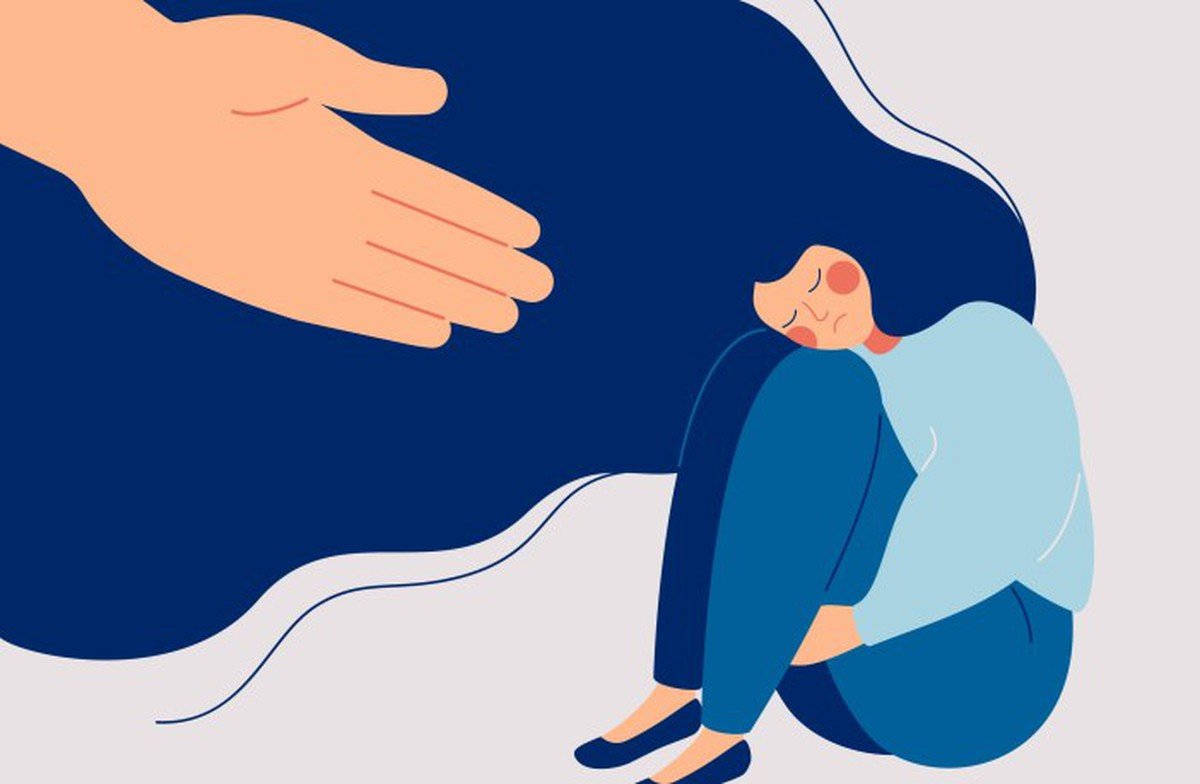
Maria Devereux was once a budding art director who to my colleagues appeared cheerful, hard-working and happily married. But what no-one knew was that on the inside, she was falling apart. It wasn’t that the people she worked with didn’t care or have any empathy, they just didn’t know they needed to.
I had married my childhood sweetheart. He was a smart, charismatic man who was always the life of the party. But he suffered for many years from a condition called cyclothymia, a mood disorder similar to bipolar disorder. Over a period of time, his mental health declined dramatically, and he attempted to take his own life. He struggled on a daily basis to overcome his illness which was incredibly hard for him but it also had a significant impact on me. As he got sicker, I did too – with anxiety-related health issues like persistent migraines and insomnia.
He found it hard to recognise the severity of his condition and to take responsibility for his mental health which left me feeling an immense responsibility to keep him alive. I lived in constant fear of what he would do next. If he didn’t get out of bed and go to work, I wondered what state I’d find him in when I got home. If he didn’t answer his phone or come home at the end of a drunken night out, I questioned whether he was still alive. So not surprisingly, after years of living in this state of panic, my own mental health started declining just as fast as his. I eventually found the strength to end the relationship. This was not a decision I took lightly after thirteen years together, but it was one I knew I had to make.
Just three months later, I received a text from him that said, ‘I no longer want to live if I can’t be with you’, and I knew instantly what had happened. Everything I’d feared. Everything I’d dreaded had finally become a reality. The funny, smart and charismatic man I’d loved for so many years had finally taken his own life. And I was left to face both the heartbreak and guilt of my decision to leave him.
I was distraught but I also knew I had a choice – to let this break me or to let it make me a stronger person. It might sound simplistic, but I leaned heavily on meditation, communication, exercise and gratitude and over time I started to change my perspective and become stronger.
Through all those years (and all those challenges) I continued to turn up to work every day with a smile on my face. Being surrounded by inspiring, creative people brings me so much joy, but more than that, I also felt like I had to ‘keep it together’. Only a handful of people actually knew what I was going through outside of work hours and I felt it was best to keep it that way.
I’d always been told I should be professional at work and leave my personal life at the door, but there’s actually nothing unprofessional about fully showing up and letting your colleagues know you need support. The reality is, no-one truly leaves their personal stuff at the door anyway so there’s no point in pretending that’s possible. Getting the emotional support we need, even if it’s just a friendly ‘how are you today?’ can actually make us happier and more productive.
And there’s plenty of evidence to suggest that happy staff can positively impact a company’s bottom line, especially at Google. Google engineer Chade Meng Chan pioneered an internal program available to all employees which aimed to improve their overall happiness. But did it actually make a difference? The answer is yes, it most definitely did. In his latest book Chan says the numbers are clear – happy employees raised sales by 37 percent, productivity by 31 percent and accuracy of tasks by 19 percent. So how do we create happier work environments where we can feel truly supported, not just by our leaders but by each other?
As I write this, I’ve just observed one of my colleagues chatting to her coworkers. She’s a kind, empathetic person who, I believe, is creating powerful change from within our organisation. It’s a wintery day and the people walking into our staff kitchen look like they’re struggling with this cold, dark Monday morning, but then they all walked out smiling. And it’s not due to the giant tubs of peanut butter. So, what happened? It’s simple really. She asked each and every one of them how they were and showed genuine concern for their wellbeing. Initially, people just assumed it was just standard small talk, so they shared a typical weekend recap. But once they realised she actually cared, they started to open up and speak freely. Some were quite open about their personal lives and she didn’t just listen, she heard them. Seeing them all walk out of the kitchen looking happier is proof that a little empathy can positively impact another person. And you never know who might desperately need it.
The more we look after each other, the happier we feel. The happier we are, the more productive we can be.
Invest in empathy. Your ROI is right there. And it all starts with a simple question, ‘How are you today?’
Maria Devereux is a creative director at Colenso BBDO.




